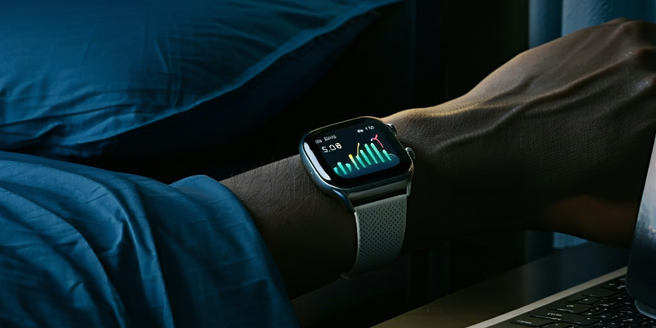Smartwatch Sleep Tracking Features

Introduction to Sleep Tracking in Smartwatches
Sleep tracking features in smartwatches have evolved significantly, allowing users to monitor their sleep patterns conveniently. These devices use various sensors to record sleep duration, quality, and disturbances. By analyzing this data, users can gain insights into their sleep habits and make informed adjustments for a healthier lifestyle. Typically, smartwatches track when the user falls asleep and wakes up, providing data on sleep cycles. This valuable information can help detect sleep issues like insomnia or irregular sleep patterns. Additionally, integration with smartphone apps allows users to review detailed analyses and set sleep goals. As technology advances, these features are continuously improving, offering more detailed insights and personalized advice for better sleep management.
How Smartwatches Monitor Sleep Stages
Smartwatches use advanced algorithms and sensors to monitor different stages of sleep, including light, deep, and REM sleep. These devices typically use accelerometers to detect movement and heart rate sensors to measure physiological changes associated with different sleep stages. By analyzing these signals, the smartwatch categorizes sleep into specific phases and provides an overview of the user’s sleep architecture. Understanding how much time is spent in each sleep stage can help identify potential problems and improve sleep quality. Some smartwatches even offer features like sleep coaching, which guides users on how to achieve better sleep patterns. However, the accuracy of this monitoring depends on the device’s sensitivity and algorithm, with ongoing research aimed at refining these technologies for even better precision.
Benefits of Using Smartwatch Sleep Tracking
The primary benefit of using a smartwatch for sleep tracking is gaining an awareness of sleep habits and patterns. These devices provide valuable insights into sleep quality and duration, which can help users make informed decisions about their lifestyle and habits. By tracking sleep cycles, users can receive personalized recommendations to improve sleep health, such as adjusting bedtime routines or optimizing sleeping environments. Additionally, smartwatch data can be shared with healthcare professionals, providing a comprehensive overview of sleep-related issues that might need attention. Enhanced awareness can lead to better overall health and well-being, as adequate sleep is crucial for cognitive function, mood stabilization, and physical health. Thus, sleep tracking with smartwatches can play a significant role in promoting a healthier lifestyle.
Accuracy of Sleep Tracking on Different Devices
The accuracy of sleep tracking on smartwatches can vary significantly between different brands and models. This variance is due to differences in sensor quality, algorithms used for processing data, and the overall design of the device. While some top-tier smartwatches offer high precision in tracking sleep stages and disturbances, others may only provide basic data, like total sleep duration. Factors such as battery life, comfort during sleep, and regular software updates also influence accuracy. Some devices incorporate additional metrics, such as oxygen saturation levels, to provide more comprehensive insights into sleep health. Users should consider these factors when choosing a smartwatch for sleep tracking, keeping in mind that no consumer device can replace the accuracy of clinical sleep studies.
Advanced Features in Modern Smartwatches
Modern smartwatches incorporate a range of advanced features for sleep tracking, offering detailed insights and analysis. Features like heart rate variability monitoring, oxygen saturation levels, and stress tracking complement basic sleep metrics. Some devices provide sleep coaching, delivering tailored advice based on individual sleep patterns and health data. Smart alarms are another popular feature, waking the user during a light sleep phase to promote a more relaxed awakening. Many smartwatches now connect with apps to log lifestyle data, which can influence sleep quality, such as caffeine consumption or exercise habits. Continuous advancements in sensor technology and machine learning algorithms are enhancing the accuracy and depth of sleep tracking, making these devices an essential tool for anyone looking to improve their sleep hygiene.
Choosing the Right Smartwatch for Sleep Tracking
When choosing a smartwatch for sleep tracking, it’s essential to consider several factors to ensure it meets your needs. Features like battery life, comfort, and accuracy of sensors can significantly influence the user experience. Look for a device with reliable sleep tracking capabilities, including detailed insights into sleep stages, quality, and disturbances. The integration with mobile apps can also enhance functionality by offering additional analyses and personalized recommendations. Additionally, consider the smartwatch’s ecosystem and compatibility with existing devices, such as smartphones or other wearable technology. Price is another important factor, with more expensive models typically offering advanced features. With careful consideration, you can select a smartwatch that provides comprehensive sleep tracking and aids in achieving better sleep health.